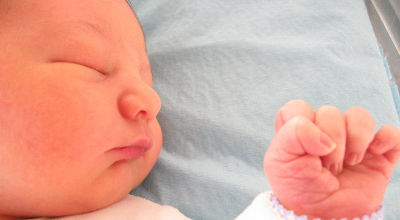Ireland Proposes Limited Access to Abortion Amid Heated Debate
Irish government ministers agreed to draft legislation on Tuesday to allow for limited access to abortion where a woman’s life is in danger, including the threat of suicide, a proposal that has already divided the country’s ruling coalition.
Ireland’s two-decade-old debate over how the government should deal with a Supreme Court ruling that abortion be permitted when a woman’s life was at risk was re-opened last year following the death of a woman who was denied an abortion of her dying fetus.
Successive governments had sidestepped acting on the ruling, the result of a challenge by a 14-year-old rape victim in the so-called “X-case” of 1992 to a constitutional amendment nine years earlier that intended to ban abortion in all instances.
However the death of Savita Halappanavar and subsequent large-scale protests from both sides of the debate spurred ministers into action despite misgivings among some members of Prime Minister Enda Kenny’s conservative Fine Gael party.
The case of Halappanavar, an Indian dentist living in Ireland, highlighted the lack of clarity in Irish law that leaves doctors in a legally risky position. Critics have said this means their personal beliefs can play a role.
Though the influence of the Catholic Church over society has waned since the 1980s and a younger, secular generation want to stem the tide of Irish women travelling to nearby Britain to terminate their pregnancies, the issue still polarises opinion.
Following an extended Cabinet meeting on Tuesday, the government published the outline of the ‘Protection of Life during Pregnancy Bill 2013’, the contents of which have dominated the political agenda in Ireland in recent weeks.
“The proposed legislation sets out a clear legal framework for women and for medical practitioners in Ireland,” the government said in a statement.
“It will provide legal clarity for the medical profession of the circumstances where a termination is permissible where there is a real and substantial risk to the life, as distinct from the health, of a woman as a result of a pregnancy.”
Backbench Rebellion?
On the contentious issue of suicide, the proposed law states that a panel composed of one obstetrician and two psychiatrists must jointly certify that a termination is required to avert a real and substantial risk to the life of the mother.
The government hopes to enact the legislation before parliament adjourns in July and Kenny has said that he expects the government to vote as one on the issue, meaning that any defectors could be expelled from his party.
One backbencher has already said he would vote against the legislation while at least a dozen more, including Minister for European Affairs Lucinda Creighton, have said they believe the inclusion of suicide could lead to abortion on demand.
While this would be unlikely to threaten the government’s record majority, it would be a blow for Kenny who, midway through his five-year term, has kept all but one of Fine Gael’s 76 members of parliament on side, even as he pushes through tough austerity measures required under an EU/IMF bailout.
Kenny’s center-left junior coalition partner Labour, which has expelled five of its members for rebelling against budget cuts, has campaigned for a clarification of the country’s abortion rules and some of its members took to Twitter late on Tuesday to welcome the bill’s publication.
But opponents dismissed assurances by Kenny that the law will be restrictive, with the Pro Life Campaign criticising the government for proposing a law that it said provides for the direct intentional targeting of the life of the unborn child.
Editing by Paul Simao
© 2013 Thomson Reuters. All rights reserved.














































